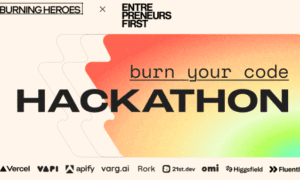In an increasingly interconnected digital realm, the seemingly abstract lines of code weaved by developers manifest real-world consequences. Software doesn’t merely make machines tick—it touches lives, molds societal structures, and raises pivotal ethical questions about its broader implications.
The Inherent Power of Code
Beyond the zeros and ones, coding has emerged as a potent force shaping our modern era. Think of sectors like finance, where algorithms decide on loan approvals; healthcare, where digital tools predict patient outcomes; or social media platforms that define our very perceptions. Such omnipresence makes coding not merely about what’s possible technically but also what’s justifiable ethically.
Bias in Algorithms
Bias isn’t always overt; sometimes, it lurks in the background, coded into the algorithms that drive our digital interactions. There’s a growing understanding that technology, previously deemed impartial, can inherit and even amplify societal biases.
One alarming example is the disparities seen in facial recognition technologies. Research has shown that some of these tools have higher error rates in identifying individuals from certain ethnic backgrounds compared to others. Such biases don’t just emerge; they often stem from training data that doesn’t adequately represent diverse populations or from underlying prejudices that inadvertently influence coding decisions.
The fallout?
A technology celebrated for its efficiency might perpetrate age-old biases, creating an uneven digital landscape.
Data Ethics and User Privacy
Data is the lifeblood of the digital age. It powers personalization, drives innovations, and unlocks new frontiers. However, with this power comes a significant ethical quandary for developers: balancing data utility with user privacy.
Instances like the Cambridge Analytica scandal have spotlighted the potential perils of unchecked data access. Here, personal data from millions of Facebook users was harvested without consent, then used for targeted political advertising. It’s a grim reminder that in the quest for personalization and precision, ethical lines can blur.
Developers, hence, find themselves at this crossroad, deciding how to ethically source, use, and protect user data. It’s not just about leveraging data for enhanced services but doing so in a manner that respects individual privacy and agency.
The Ethical Implications of AI and Automation
Artificial Intelligence (AI) and automation stand as testaments to human ingenuity. However, they also present ethical dilemmas that developers can’t sidestep. One of the most pressing concerns revolves around job displacements. A report from the World Economic Forum projected that by 2025, automation would displace approximately 85 million jobs. Yet, it could also create 97 million new roles.
This transformative shift, driven by code, puts developers in a pivotal position. They aren’t just creating tools that might replace traditional jobs; they’re shaping the very nature of future work. It’s essential, then, for developers to be conscientious, understanding the broader societal ramifications and ensuring their innovations offer value beyond mere efficiency.
Open Source and Its Ethical Dimensions
Open-source software, with its ethos of collaboration and transparency, has democratized development. Platforms like GitHub have fostered a sense of community where ideas and code are shared freely. However, this very openness can be a double-edged sword.
Take, for example, the Heartbleed bug. This security vulnerability in the OpenSSL cryptography library, which is open-source, endangered data for millions, showcasing the potential risks lurking even in the most revered open-source projects. Developers contributing to or leveraging open-source projects must, therefore, be hyper-vigilant. They should be proactive in identifying vulnerabilities and ethical in how they use or modify open-source tools.
Coding Skill Testing: An Ethical Dimension
While developers are usually assessed on their coding prowess, there’s an increasing need to intertwine these technical evaluations with ethical awareness. Modern Coding skill evaluation tests should challenge developers to spot biases, ensure data privacy, and ponder the ethical implications of their algorithms. It’s not just about creating a functional solution but one that’s fair and cognizant of real-world impacts. By integrating ethical dimensions into skill testing, we don’t just craft proficient coders; we nurture developers who are poised to shoulder the profound responsibilities their role entails.
Creating an Ethical Framework
In a world where coding decisions can influence societal trajectories, it’s imperative to have a guiding compass. Organizations like the ACM (Association for Computing Machinery) have proactively framed codes of conduct and ethical guidelines. These aren’t just rulebooks but guiding lights, helping developers navigate the intricate maze of ethical challenges in their work. Embracing such frameworks ensures that the digital future we craft is not only innovative but also inclusive and just.
Conclusion
Coding, in its essence, is a dialogue between humans and machines. However, its reverberations echo far and wide, influencing societies, economies, and individual lives. Developers, the orchestrators of this dialogue, wield immense power. And as the age-old adage reminds us, with great power comes great responsibility. The call of the hour is for developers to not only stay technically adept but also ethically informed, ever-aware of the broader canvas on which their code leaves its indelible imprint.



































